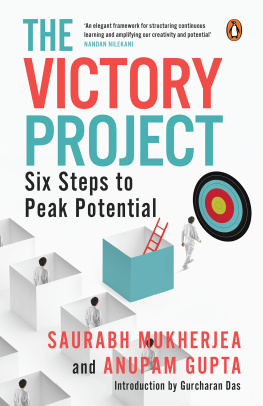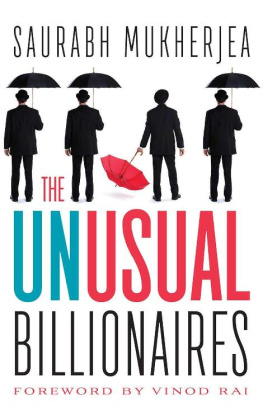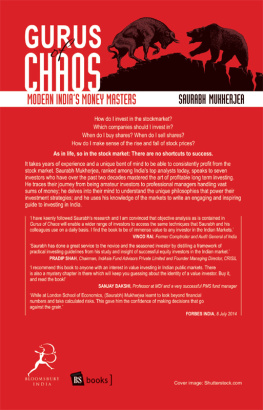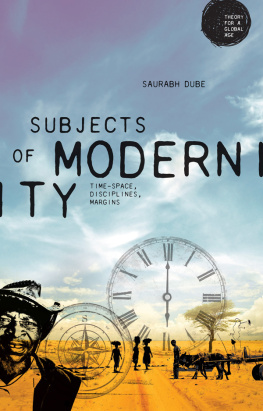Saurabh Mukherjea - The Victory Project
Here you can read online Saurabh Mukherjea - The Victory Project full text of the book (entire story) in english for free. Download pdf and epub, get meaning, cover and reviews about this ebook. year: 2020, publisher: Penguin Random House India Private Limited, genre: Romance novel. Description of the work, (preface) as well as reviews are available. Best literature library LitArk.com created for fans of good reading and offers a wide selection of genres:
Romance novel
Science fiction
Adventure
Detective
Science
History
Home and family
Prose
Art
Politics
Computer
Non-fiction
Religion
Business
Children
Humor
Choose a favorite category and find really read worthwhile books. Enjoy immersion in the world of imagination, feel the emotions of the characters or learn something new for yourself, make an fascinating discovery.
- Book:The Victory Project
- Author:
- Publisher:Penguin Random House India Private Limited
- Genre:
- Year:2020
- Rating:4 / 5
- Favourites:Add to favourites
- Your mark:
- 80
- 1
- 2
- 3
- 4
- 5
The Victory Project: summary, description and annotation
We offer to read an annotation, description, summary or preface (depends on what the author of the book "The Victory Project" wrote himself). If you haven't found the necessary information about the book — write in the comments, we will try to find it.
The Victory Project — read online for free the complete book (whole text) full work
Below is the text of the book, divided by pages. System saving the place of the last page read, allows you to conveniently read the book "The Victory Project" online for free, without having to search again every time where you left off. Put a bookmark, and you can go to the page where you finished reading at any time.
Font size:
Interval:
Bookmark:




PENGUIN BOOKS

PENGUIN BOOKS
Today we live in a world which is knowledge- and data-rich, but time-starved. At the same time, we need to keep our skills current, to keep pace with rapid changes and disruption. This book provides an elegant framework for structuring continuous learning and for amplifying our creativity and potential while dealing with the intense pressure of our workNandan Nilekani, chairman and co-founder, Infosys, and founding chairman, UIDAI (Aadhaar)
At a time when the formal education system in India is struggling to cope with the rapidly evolving skilling needs of the economy, this book provides a framework that industrious professionals can use for sustained personal developmentT.V. Mohandas Pai, chairman, Manipal Global Education, and former CFO, Infosys
In a complex and fast-changing world, common sense, simplicity and focus bring tremendous competitive advantage. I think the book highlights the best attributes of all these important virtuesMotilal Oswal, managing director and CEO, Motilal Oswal Financial Services
I wish Id had the benefit of the perceptive analysis and practical advice in this book when I was starting outAvinash K. Dixit, John J.F. Sherrerd 52 University Professor of Economics, Emeritus, Princeton University
Books which fuse the best practices from India with the teachings of leading Western gurus are rare. This one is an addition to that short list. The case studies and interviews contained in the book are particularly usefulArundhati Bhattacharya, former chairman, State Bank of India
In a networked and VUCA (volatility, uncertainty, complexity, ambiguity) world, where collaboration, grit and emotional maturity are often more important than functional knowledge, this book offers a powerful template for development as a holistic leaderSaugata Gupta, MD and CEO, Marico Limited
Coffee Can Investing: The Low-Risk Road to Stupendous Wealth (co-authored with Rakshit Ranjan and Pranab Uniyal)
Coffee Can Investing: The Low-Risk Road to Stupendous Wealth... is a must-read for all... For those who worship moolah, this book could be a BibleOutlook Money
Besides discussing the coffee can portfolio, the book packs in a number of lessons that investors will find relevant to these timesBusiness Standard
The shift in savings away from physical towards financial assets is one of the defining changes of this decade. Coffee Can Investing captures the underlying reasons for this change and then lays out a route map to wealth creation that almost everyone can followManish Chokhani, Enam Holdings
Anyone who wants to invest sensibly and retire happily should read this bookSanjay Bakshi, adjunct professor, Management Development Institute, Gurgaon
... [W]ell-researched, informative and thoughtfully structuredThe Hindu BusinessLine
The Unusual Billionaires
Saurabh Mukherjea describes incisively how some great Indian companies have achieved corporate success and made a great deal of money for investors along the wayJohn Kay, author of Other Peoples Money, and former professor of economics, London School of Economics
An insightfuland reassuringexposition of how steady good sense can consistently beat the unsteady SensexRama Bijapurkar, author and management consultant
Mukherjeas book is insightful and makes for easy readingThe Financial Express
Mukherjea is one of our most erudite writers in the field of investment bankingMint
Books that are able to describe successful businesses through a common theme of analytical framework are rare in India. This one is an addition to that small collectionMoneylife
This book does not just list the winning pack, but also traces the history of these companiesThe Hindu BusinessLine
To my maternal grandparents, Archana and Pranab Kumar Chatterjee, for planting the reading bug in my head
Saurabh Mukherjea
To my mother, Shubhra Saran, for the encouragement to read and write from as far back as I remember
Anupam Gupta
The subject of Saurabh Mukherjea and Anupam Guptas book is high performance. They prescribe a number of steps to achieve it and narrate sparkling stories to illustrate it. This is altogether fitting, for Indians have always learnt how to live their lives from stories, and this is why India has one of the richest storytelling traditions in the world. In this spirit, I would like to narrate a couple of my favourite tales that will illustrate the fundamental principles in this book.
The first one, called The Mouse Merchant, is from an eleventh-century Shaivite Kashmiri anthology, Kathasaritsagara. It is a story about entrepreneurship, in tune with our age of start-ups, and demonstrates some of this books principles in action: simplicity, collaboration, innovation and determination. The hero of the story is a young man whose father, a merchant, had died when his mother was pregnant, and his wicked uncles had stolen his inheritance. His mother had since supported him by cleaning houses and doing other menial work. Though poor, she persuaded a teacher to instruct her son in writing and mathematics. When the boy grows up, his mother says to him, Remember, you are the son of a great merchant. Go and make a fortune. Meet Vishakhila, the richest merchant in our city, and he will give you advice.
The next day, the young man goes dutifully to the rich mans mansion. While waiting outside, he sees a dead mouse in his courtyard. When the rich merchant appears, he asks him if he can have the dead mouse. Vishakhila laughs.
People come to me for money and favours; dont you want anything?
No, sir, says the young man, and he thanks him for the dead mouse.
He sells the mouse to a widow with a cat, who lives near his house. With a few paisa that she gives him for the mouse, he buys two handfuls of channa, which he grinds and makes into little packets of snack food. With a pot of water and his snack food, he goes and stands under a shady tree at the crossroads outside the city. In the afternoon, loggers arrive from the forest, put down their bundles of timber and sit down to rest. The young man offers each of them a snack packet and water. They are grateful but since they have no money to repay his kindness, each one gives him a log of wood. On the way home, he sells one log to buy channa and stores the other logs at home. The next day he repeats the same thing, and then every day for the next three months, until the logging season stops with the arrival of the monsoon rains.
Because of its scarcity in the market, the price of timber begins to climb. His house is by now full of wood and he slowly begins to unload it in the timber market. By the end of the season, he has made a killing. He buys a shop in the timber market from his profits, and by the next season he has become a timber merchant. He also finds that he has a competitive advantage over other merchants because the loggers know him as the young man who was once kind to them at the crossroads. Since they prefer to deal with him, his market share begins to climb. Before long, he becomes the richest merchant in the timber market.
Font size:
Interval:
Bookmark:
Similar books «The Victory Project»
Look at similar books to The Victory Project. We have selected literature similar in name and meaning in the hope of providing readers with more options to find new, interesting, not yet read works.
Discussion, reviews of the book The Victory Project and just readers' own opinions. Leave your comments, write what you think about the work, its meaning or the main characters. Specify what exactly you liked and what you didn't like, and why you think so.












